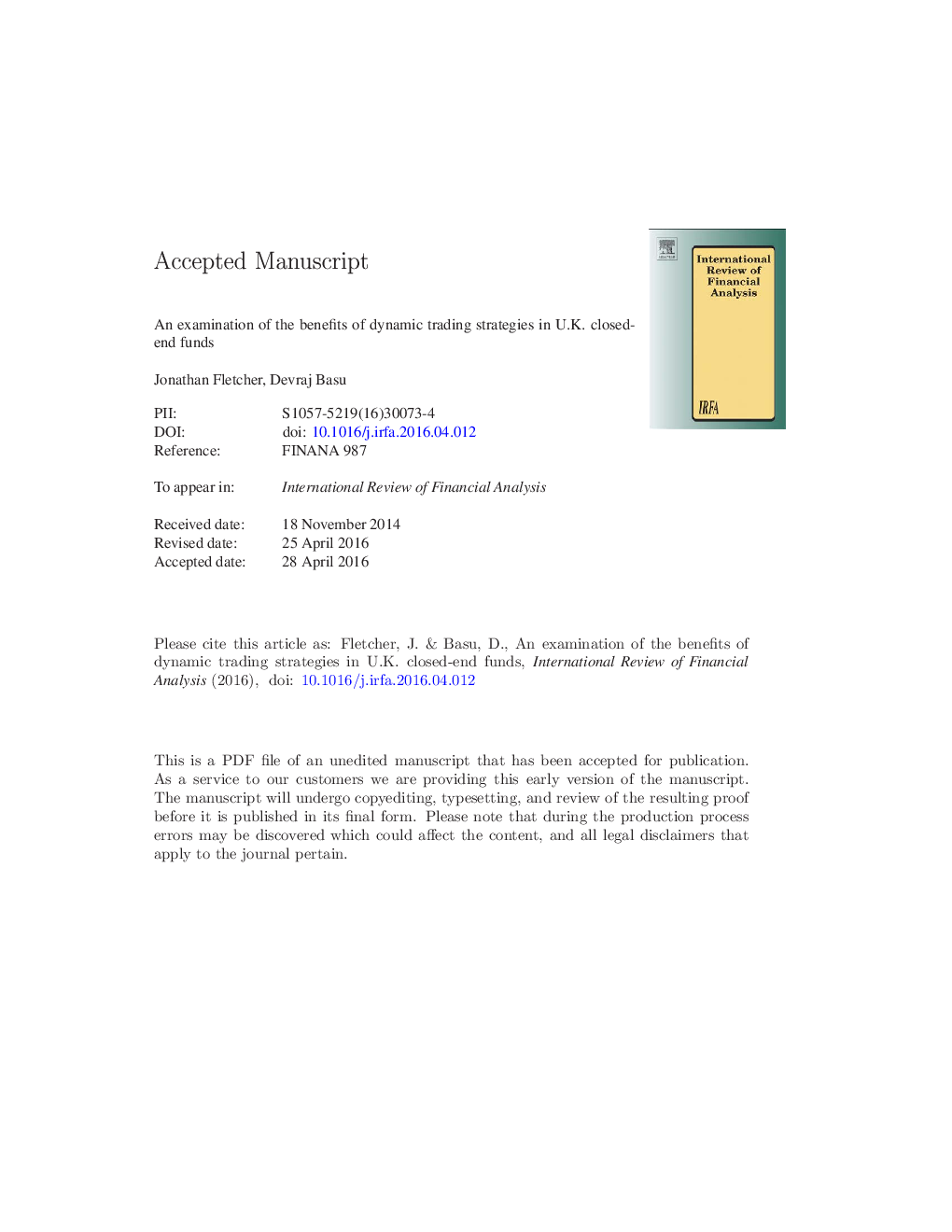| Article ID | Journal | Published Year | Pages | File Type |
|---|---|---|---|---|
| 5084507 | International Review of Financial Analysis | 2016 | 48 Pages |
Abstract
We examine the after-cost out-of-sample performance of the unconditional mean-variance (UMV) strategy in the presence of conditioning information (Ferson and Siegel (2001)) using portfolios of U.K. equity closed-end funds. We find that the performance of the UMV strategy significantly improves when using lagged information variables with the highest persistence (first-order autocorrelation) levels and reduces turnover. This strategy is able to outperform alternative dynamic trading strategies and performs well across different subperiods. At low levels of trading costs, the UMV strategy is able to deliver significant value added to investors.
Related Topics
Social Sciences and Humanities
Economics, Econometrics and Finance
Economics and Econometrics
Authors
Jonathan Fletcher, Devraj Basu,
